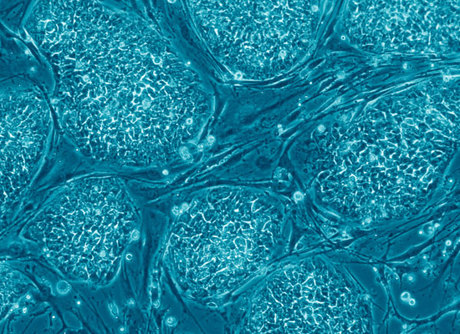Mesoblast to head to phase III for stem cell treatment for spinal fusion

Mesoblast (ASX:MSB) received a welcome bump to its flagging stock price this morning on the back of news that it will take its spinal fusion treatment, NeoFuse, to phase III this year.
This came after the company announced at the JP Morgan Healthcare Conference in San Francisco positive results from a phase II trial of the stem cell treatment.
The trial was conducted in the United states and compared Mesoblast’s mesencyhmal precursor cell treatment, NeoFuse, with the gold standard in spinal fusion: bone autograft.
Both treatments aim at fusing two degenerated spinal discs in order to prevent motion between them, thus reducing back pain.
Bone autograft is considered a major surgical procedure, and is often associated with complications such as infection, nerve damage or even a worsening of pain.
Mesoblast’s alternative involves a minimally invasive surgical procedure to inject its mesenchymal precursor cells between the discs in order to prompt them to fuse together.
There were three groups in the study, which involved 24 patients overall. The first group received the gold standard bone autograft. The second group received an injection of 25 million mesenchymal precursor cells (MPCs). The third group received 75 million MPCs.
The study found the MPCs were well tolerated and there were no cell-related serious adverse events and no ectopic bone formation. Patients who received the MPC injection also suffered less blood loss during surgery.
And crucially, the patients who received the injection of 25m MPCs enjoyed a 85.7% fusion rate after 12 months, compared to 62.5% in the 75m MPC group and 75% in the control group.
As such, the 25m MPC injection not only involved less serious surgery, but showed an improved rate of bone fusion.
All groups reported lower back pain subsequent to their treatment.
“Based upon my experience in the phase II study, Mesoblast’s cells may provide a significant and valuable option to achieve fusion in patients with severe spinal disc degeneration and these results warrant progressing to a phase III study,” said Dr Randall Dryer, orthopaedic surgeon at Central Texas Spine Institute and investigator in the study.
The worldwide market for bone graft substitutes, including spinal fusion, is estimated at over $1.5bn, with around 70% coming from spinal fusion procedures.
Following the positive results, Mesoblast intends to take NeoFuse to phase III in 2013, recruiting in Australia, the United States and Europe.
Mesoblast’s (ASX:MSB) share price bounced by 6% in morning trading, up 31c to $5.55 as of around 11am.
Mini lung organoids could help test new treatments
Scientists have developed a simple method for automated the manufacturing of lung organoids...
Clogged 'drains' in the brain an early sign of Alzheimer’s
'Drains' in the brain, responsible for clearing toxic waste in the organ, tend to get...
World's oldest known RNA extracted from woolly mammoth
The RNA sequences are understood to be the oldest ever recovered, coming from mammoth tissue...



